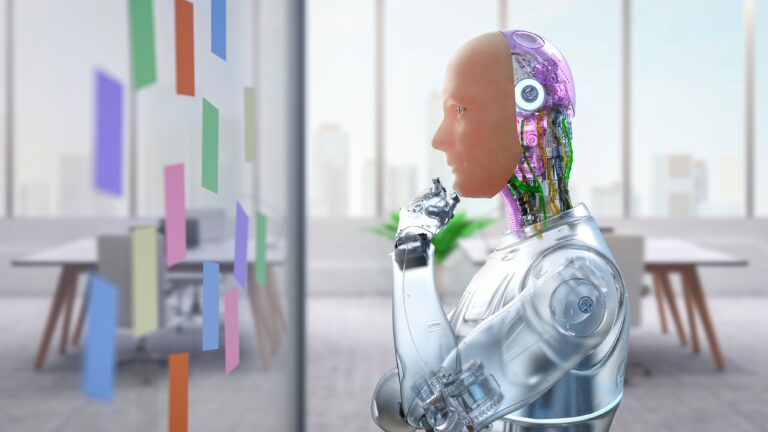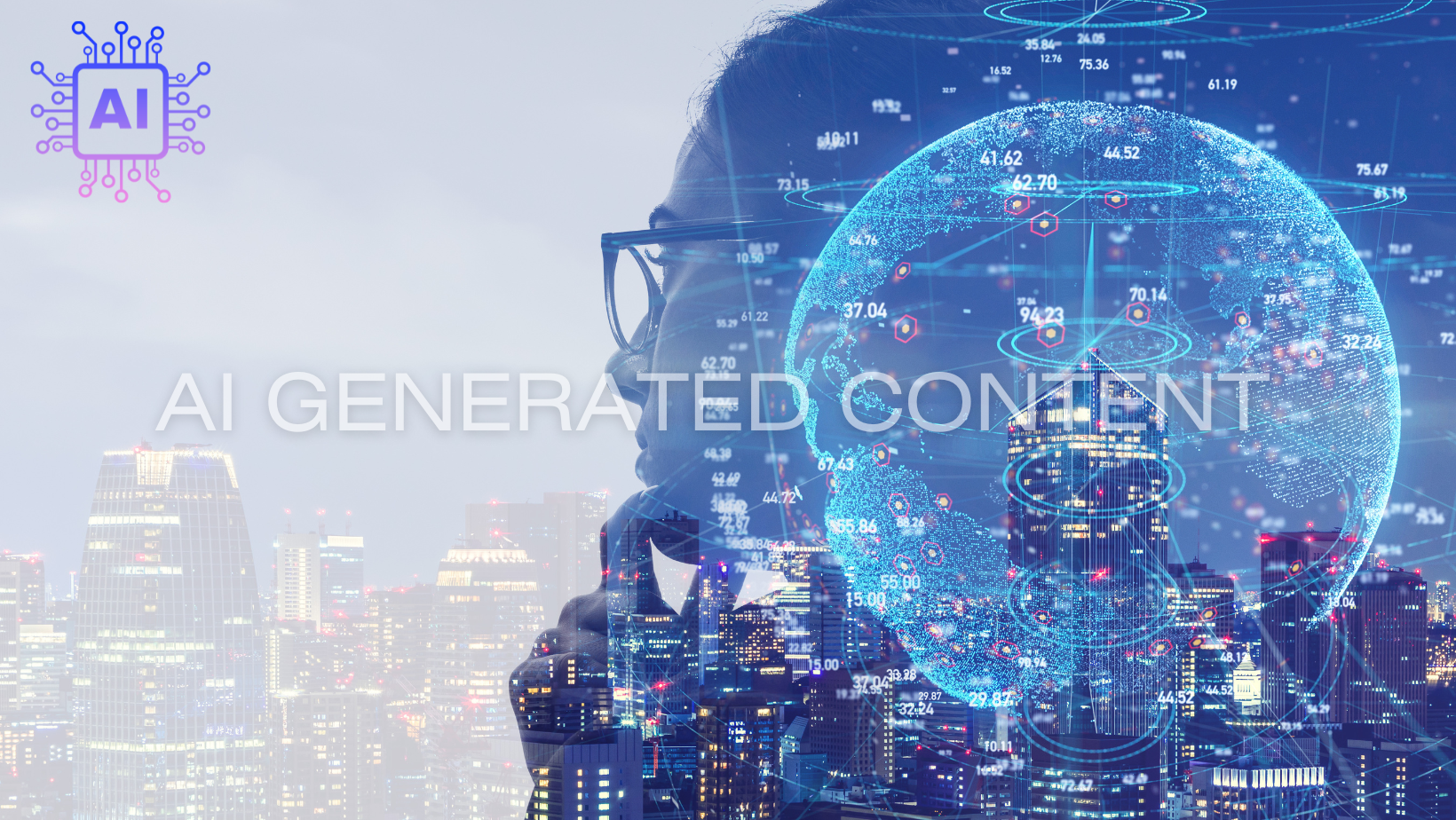The Future of Generative AI-Powered Customer Service by 2025
In the ever-evolving landscape of customer service, artificial intelligence (AI) has emerged as a transformative force. As we look ahead to 2025, the role of AI in customer service is set to become even more significant, with Generative AI leading the way. This technology promises a future where customer interactions are more personalized, efficient, and satisfying. In this blog, we will delve into the exciting prospects of Generative AI in customer service, exploring its potential and the impact it will have on businesses and consumers.
Generative AI: A Game-Changer in Customer Service
Generative AI, a subset of artificial intelligence, is capable of producing text, images, and other forms of content that are indistinguishable from those created by humans. In the context of customer service, AI holds immense promise. Here’s how it’s set to revolutionize the industry:

1. Natural and Conversational Interactions
One of the most significant limitations of traditional customer service chatbots and automated systems has been their rigidity and lack of conversational ability. AI changes this paradigm by enabling chatbots and virtual assistants to engage in natural, human-like conversations.
Imagine contacting a company’s support line and having a conversation with a virtual agent who understands your queries, responds empathetically, and adapts its tone and style to match your preferences. Generative AI can analyze historical customer interactions, understand context, and generate responses that are not only accurate but also genuinely conversational. This not only enhances customer satisfaction but also reduces the workload on human agents.
2. Personalized Recommendations and Assistance
Generative AI can leverage vast datasets to provide personalized product recommendations and assistance to customers. By analyzing customer behavior, preferences, and historical data, AI-powered systems can offer tailor-made suggestions, helping customers find the products or services that best suit their needs.
For example, an e-commerce platform can use AI to recommend products based on a customer’s past purchases, browsing history, and even online reviews. This level of personalization can significantly boost sales and customer engagement, resulting in improved customer experiences.

3. Faster Issue Resolution
AI can process and understand customer inquiries swiftly, leading to faster issue resolution. By extracting critical information from customer messages and generating appropriate responses or solutions, AI-powered systems can eliminate the need for customers to wait in long queues or go through multiple layers of human agents before finding a resolution.
For instance, a utility company can utilize Generative AI to interpret and respond to power outage reports more efficiently. The AI system can provide relevant information about the outage and estimate the restoration time, reducing customer frustration and inconvenience.
4. Multilingual Support
As businesses expand globally, the ability to provide support in multiple languages is becoming increasingly crucial. Generative AI can overcome language barriers by offering instant translation and multilingual support. This is a game-changer for companies aiming to reach a global customer base.
AI-powered chatbots can seamlessly communicate with customers in their preferred language, breaking down communication barriers and ensuring that customer service is accessible to a broader audience.

5. 24/7 Availability
Generative AI doesn’t require rest or sleep, making it an ideal solution for providing round-the-clock customer service. Unlike human agents, AI-powered systems are available 24/7, ensuring that customers can receive assistance and information whenever they need it.
This continuous availability is particularly valuable for businesses operating in different time zones or serving customers with diverse schedules. It ensures that no customer inquiry goes unanswered and contributes to enhanced customer loyalty.
6. Data-Driven Insights
AI can analyze and interpret vast amounts of customer data, providing businesses with valuable insights. By identifying patterns, customer preferences, and pain points, AI can help companies make informed decisions to improve their products, services, and customer service strategies.
For instance, an airline can utilize Generative AI to analyze customer feedback and complaints. This analysis can reveal recurring issues, allowing the airline to address them proactively and enhance the overall travel experience.
The Impact of Generative AI on Businesses
The integration of AI into customer service operations can have a profound impact on businesses:
1. Cost Efficiency
While the initial investment in Generative AI technology can be significant, the long-term cost savings are substantial. AI-powered systems can handle a large volume of customer inquiries and support tasks, reducing the need for a vast human customer service team. This not only cuts labor costs but also improves operational efficiency.
2. Improved Customer Satisfaction
Generative AI’s ability to provide personalized, natural interactions and fast issue resolution leads to higher levels of customer satisfaction. Satisfied customers are more likely to become loyal patrons and recommend your brand to others.
3. Scalability
Businesses can easily scale their customer service operations with Generative AI. As customer demand increases, AI systems can adapt and handle a larger volume of inquiries without the need for extensive human workforce expansion.
4. Competitive Advantage
Companies that embrace AI in their customer service will gain a competitive edge. The ability to offer superior, personalized support and assistance will set them apart from competitors still relying on traditional customer service methods.

The Customer's Perspective
While Generative AI holds immense potential for businesses, it’s equally important to consider the impact on customers. How will they perceive and benefit from this technology?

1. Convenience
Customers will enjoy the convenience of faster issue resolution, 24/7 support, and personalized recommendations. With AI-powered systems, they can access the information and assistance they need quickly and easily.

2. Enhanced Experience
Generative AI will make customer interactions more natural and enjoyable. Customers will no longer feel like they are talking to a robotic script but will have engaging conversations with AI that understands and caters to their needs.

3. Multilingual Access
Customers who speak different languages will have equal access to high-quality customer service. They can communicate in their preferred language, eliminating language barriers and frustration.

4. Data Privacy
To ensure customer trust and satisfaction, it's vital that businesses using Generative AI prioritize data privacy and security. Customers must be confident that their personal information is handled responsibly and securely.
Conclusion
In conclusion, the future of AI-powered customer service by 2025 is set to be driven by Generative AI, offering businesses unparalleled advantages in efficiency, cost savings, and customer satisfaction. This technology will reshape the way customers interact with brands, making their experiences more personalized, convenient, and enjoyable. As businesses and consumers alike continue to embrace AI, the customer service landscape will evolve, ultimately creating a win-win scenario for all parties involved. Businesses will thrive, and customers will reap the rewards of a more efficient and customer-centric service ecosystem.
Companies like IBU Consulting, specialized in AI and technology integration, will be instrumental in helping businesses harness the power of Generative AI effectively. As we approach 2025, embracing Generative AI in customer service is the key to staying competitive and providing exceptional experiences.
